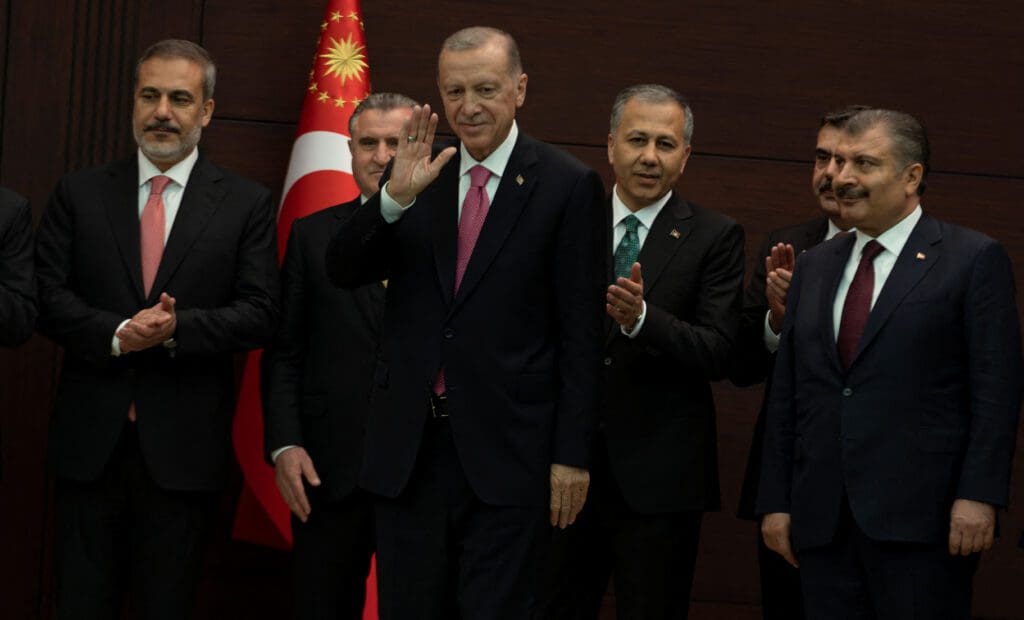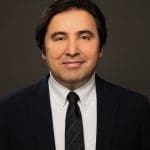1. What accounts for the election results, both in terms of Erdogan’s performance and the opposition alliance’s defeat? What will happen to the alliance now?
The election results illustrate that President Erdogan’s campaign narratives of maintaining continuity in tumultuous times, his quest to make Türkiye a powerhouse in international affairs, and the fight against terrorism, underpinned by lavish electorally-motivated spending packages for civil servants and early retirement for millions of people, resonated more with voters than the opposition’s promise of change in nearly all policy areas. Erdogan’s victory and the opposition’s defeat are likely to induce long-term, structural changes in Turkish politics.
To be precise, we are likely to see a period of soul-searching within the opposition camp. There will be more calls for the opposition leadership, particularly CHP-head Kemal Kilicdaroglu, to step down. But given the small margin of defeat for the opposition, Kilicdaroglu may hold onto his position for the time being, although not likely for the long term. However, the opposition alliance in its previous form—with its six parties all supporting the CHP leader—will cease to exist. It is likely that the opposition parties will explore ways for cooperation in the run-up to the next election cycle, but this cooperation will probably take a different form.
Finally, Turkish politics is on the cusp of a generational change. Kilicdaroglu is 74 years old. The co-chairs of the pro-Kurdish HDP promised to step down in response to the electoral setback. And, according to the constitution’s term limits, this is Erdogan’s last stint as president. Therefore, Türkiye’s politics is on the verge of another formative period, which will define its politics for decades to come.
2. Given how fiercely the opposition contested the elections on the basis of change, are we likely to see policy adjustments from Erdogan and the AKP in the coming years? What commitments were made and are they likely to be carried out?
After the election, Erdogan announced the formation of a high-profile and very capable cabinet. The names in key cabinet posts are well-respected and professional. For instance, the vice president, Cevdet Yilmaz, and finance minister, Mehmet Sismek, are internationally regarded economists, and their appointments signal the emphasis that will be put on reviving the economy on day one of Erdogan’s third term as president. The new foreign minister, Hakan Fidan, is Türkiye’s influential former spymaster and one of the key brains—and muscle—behind Turkey’s geopolitical activism for more than a decade now. Plus, the new chief of intelligence, Ibrahim Kalin, was previously Erdogan’s chief advisor on foreign policy—essentially a national security advisor—and is a respected name.
Türkiye’s ongoing economic woes have been a key source of vulnerability for Erdogan, particularly in local elections. Erdogan’s AKP lost control of Istanbul and Ankara in 2019, and Erdogan lagged behind Kilicdaroglu in most major cities in last month’s election. The new government will likely make economic issues an early priority in order to prepare for the upcoming local elections in March 2024, less than a year away.
Another major issue that was highly politicized during the recent elections was the Syrian refugee issue. The opposition camp adopted a fiercely xenophobic, nationalist rhetoric that inflated the number of refugees and promised to send all of them back to the war-torn country if they were elected. Unfortunately, the message resonated. Despite, Erdogan’s criticism of the opposition’s tone regarding the refugees, he also advanced a vision that was premised on the gradual refoulement of the Syrians back to Syria. With Erdogan’s victory, Syrian refugees can breathe a sigh of relief, momentarily. However, given the rise of anti-refugee sentiments, xenophobic nationalism, and the level of politicization of the subject, this respite is likely to be temporary. The tragedy is that both sides advanced refoulement as the policy needed for refugees rather than their integration into broader Turkish society.
3. How did Erdogan and Turkey’s regional foreign policy over the past year play into the election outcome? And what can Turkey’s regional partners and adversaries expect in the years ahead?
Arguably in no election in Turkish history have foreign and security policies played such a sizable role. Aside from the narrative of fighting terrorism, Erdogan appealed directly to the society’s sense of grandeur and greatness that is informed by its imperial past, as well as the quest to restore it. He constantly emphasized Türkiye’s heightened status in international affairs, as a country standing up to global powers and exercising autonomy in its foreign and security policies. To underpin his messages, Erdogan showcased Turkish prowess in military technology, especially in highly popular drone technology.
In contrast, the opposition failed to advance a coherent and appealing foreign policy vision and narrative, which proved to be a weak spot in their campaign.
What to expect on foreign policy front then? Continuity will likely define Türkiye’s foreign policy in the coming period but with certain modifications. Over the past decade, security and geopolitics have been the central focus. Moving forward, geoeconomics will likely come to define Türkiye’s foreign policy.
Geopolitical balancing will still play an important role as Ankara continues to maneuver between Russia and the West. In practice, this means not joining Western sanctions on Moscow in favor of maintaining strong ties. In regards to Russia’s invasion of Ukraine, however, Ankara will continue to try and be pro-Ukraine without becoming anti-Russia. The cost of a Russian victory is too high for Ankara to be acceptable. The war is taking place in the Black Sea and Türkiye is a major Black Sea power, along with Russia and Ukraine. If Moscow changes the balance of power in any fundamental way, this will pose a long-term threat to Türkiye.
Relations with the West will likely be defined by transactionalism, compartmentalization, political realism and pragmatism. To put it more clearly, Ankara and the West will engage in transactional cooperation wherever its interests dictate, compartmentalizing the various issues of possible collaboration so that Türkiye may seek diversification in its partnerships as it sees fit. At the moment, however, Türkiye’s decision to hold up Sweden’s NATO membership bid, and its demand for F-16 jets from the US, remain sticking points in the relationship and are unlikely to be resolved soon. Finally, Türkiye’s deepening strategic defense relationships with China and Russia are adding to the tensions with the West, particularly in this moment of emerging great power competition. Having said that, the new cabinet has powerful and capable names. The case in point is Fidan, who has transformed the nexus of Türkiye’s foreign, security and intelligence ecosystem, and Simsek, who presided over periods of economic growth in Türkiye. This cabinet is likely to prove skillful in managing the differences, disputes and crises with the West.
When it comes to the Middle East, Erdogan will likely continue the policy of rapprochement with its erstwhile rivals, the Arab Gulf states and Israel, which is at least partly necessitated by its economic needs. Türkiye’s tenuous outreach to the Assad regime in Syria is also likely to continue, with Russia playing the role of “gatekeeper.” At the same time, tensions with Iran are on the horizon.
The opinions expressed in this article are those of the author and do not necessarily reflect the views of the Middle East Council on Global Affairs.


